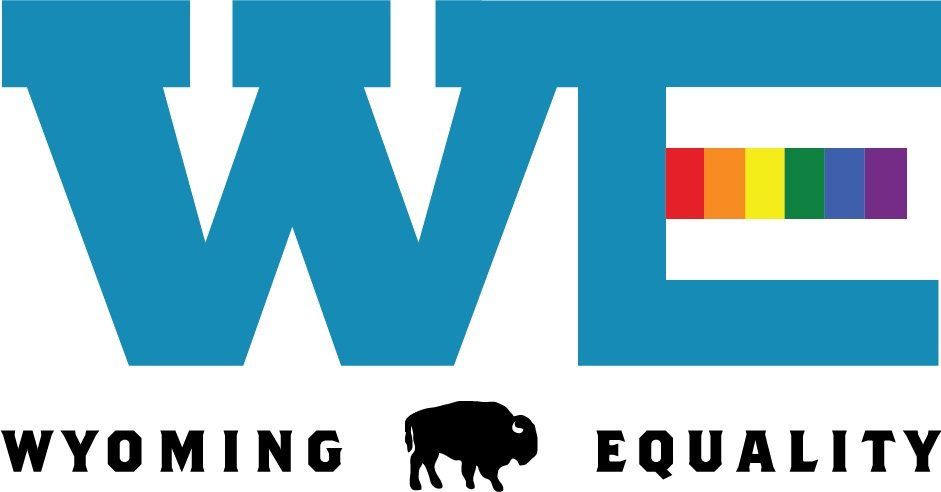United Voice: The Wyoming Equality Magazine
March 2023 Issue
Learning Social Work
on the Ground
By Hana Lerwick
I started the Master of Social Work program thinking that clinical social work was the path I would take. I thought I would learn about therapeutic methods and gain first-hand experience with these methods through my practicum. During the process of selecting my first-year practicum placement, Wyoming Equality was an agency very different from what I believed my direction in social work to be.
However, when I went in for my interview with Wyoming Equality, I found an immediate connection with the staff and mission of the nonprofit. Ultimately, I followed my heart when choosing Wyoming Equality for my internship and am eternally grateful that I did. The MSW program taught me the importance of macro work. This entails community building and organizing, policy work, and advocacy. Wyoming Equality has shown me the vital importance of these practices in real life.
I’ve gained an entirely different perspective of what it means to be a social worker and how that looks in practice. Alongside what I was learning in the classroom, I’ve learned and grown through my work at Wyoming Equality. My first experience of Wyoming Equality was at Rendezvous last summer. I showed up not entirely knowing what to expect, and was blown away by the sense of community and connection I experienced in just a short time. I’ve been humbled and grateful for the learning gained just by listening to others – my fellow staff members at Wyoming Equality, the partner organizations that seek to further the mission of equity and affirmation, and above all, the community that Wyoming Equality works alongside.
The first undertaking for me as an intern at Wyoming Equality was facilitating community groups for the LGBTQ community in Wyoming. Alongside Kota Babcock, Wyoming Equality’s Healthcare Access Project Coordinator, we began organizing two community groups: one for LGBTQ adults and allies over fifty and the other for transgender, gender-nonconforming, and questioning adults. During this process, I quickly learned the depth of the efforts needed to organize these groups. With the support of LGBTQ organizations, affirming providers, local businesses, and the communication work at Wyoming Equality, we were able to build a safe space slowly but surely for group members to join in and build connections. Through this process I gained confidence in my ability to do community outreach. I’ve also been able to put the social work value of relationships into practice.
One of my greatest drives for these groups was the ultimate belief that connection and relationship are the most important avenues for creating change. The importance of human relationship is one of the core values of social work. I’ve been able to experience this value first-hand through the groups. While it may not always look how you would expect change-centered work to, it is the spirit of connectedness that helps to foster a sense of community and self-worth. Finding like-minded folks with similar experiences helps to externalize feelings of shame and worthlessness that oppressive systems and beliefs in our society can place on individuals in order to maintain power. Through relationship building and connection, this process of externalizing problems allows individuals to feel a renewed sense of empowerment. Many group members have shared that they have trouble finding community in such a rural state as Wyoming. Through their participation in these groups, they’ve been able to gain community with others across the state.
Community-building is what allows for mobilizing and creating necessary change. The community groups are just one aspect of this, but Wyoming Equality affects community-building far beyond that. For instance, I’ve been able to participate in the work we do with Safe and Healthy Schools. Ray Kasckow, the Safe and Healthy Schools Coordinator, has provided safe, affirming spaces for queer students across Wyoming. I was able to witness how powerful this is firsthand. High school GSA students came together for a Civics Day where they learned about lobbying and spent a day at the capitol practicing their skills and advocating for their community.
Social work values place an important emphasis on serving youth. During adolescence, it is especially important to build connections with peers as young people develop their identity and self-worth. In a heteronormative society that seeks to oppress those who don’t fit into this ideal, it is especially important for LGBTQ youth to have safe and affirming spaces. During Civics Day, it was powerful to see students from different schools build connections and community with one another. Lobby Day was a catalyst for empowerment among these students as they used their combined power and voice to effect change.
While all areas of social work are necessary and important, I’ve found fulfillment in using my social work education to contribute to community-building and organizing. Wyoming Equality has allowed me to put this knowledge into practice in a variety of ways. Social work practice involves advocacy and service on the individual, group, and social level. The mission of Wyoming Equality stresses the overlap of these different areas of social work. As I’ve learned through my social work program, different levels of social work should not be seen as separate avenues of work. Rather, all levels work together to advocate for progress, meaningful change, and service. At Wyoming Equality, we approach our work in this way every day.



